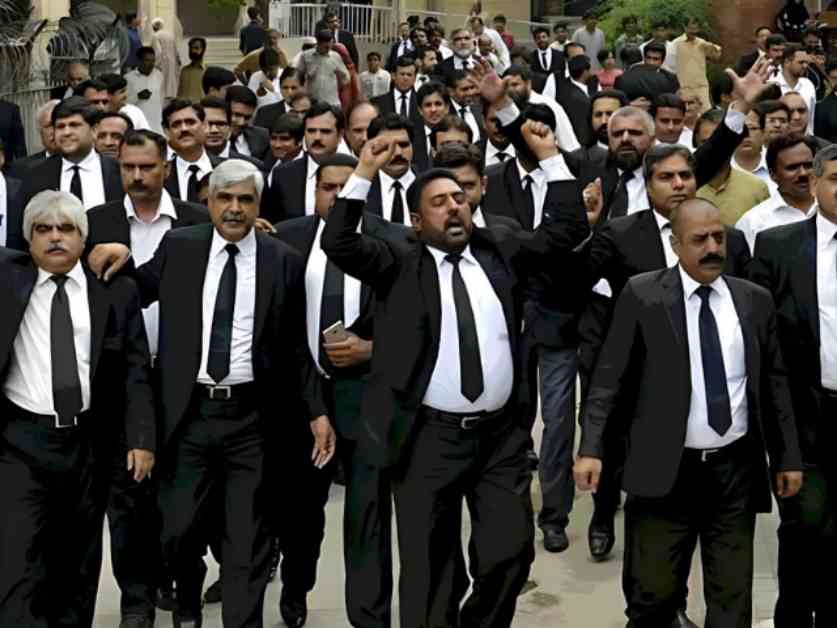The protest led by lawyers in Islamabad has caused a significant upheaval in the city, disrupting the Metro bus service and affecting daily commuters. The closure of key entry points to the Red Zone, including Serena Chowk, Express Chowk, and Nadra Chowk, has not only caused inconvenience for commuters but has also led to heavy traffic congestion and a standstill for those needing to access government offices in the area.
Lawyers’ Protest and Traffic Disruptions
The lawyers’ protest in Islamabad has prompted the closure of several key entry points to the Red Zone, leading to immense traffic disruptions and inconvenience for citizens. The suspension of Metro bus services between Islamabad and Rawalpindi has added to the chaos, with reports indicating that buses were restricted to the Faiz Ahmed Faiz Station, leaving commuters stranded and struggling to navigate the city.
The closure of the Red Zone, as directed by the district administration, has further exacerbated the situation, with long lines of vehicles forming on Margalla Road as drivers attempt to access the blocked areas. Citizens intending to visit government offices located in the Red Zone, such as the Ministry of Foreign Affairs, have found themselves stranded due to the road closures, adding to the frustration and challenges faced by residents in the capital city.
Legal Organizations’ Opposition and Judicial Commission Meeting
Last week, legal organizations in Islamabad expressed strong opposition to the recent transfers of judges, labeling them as attempts to sow discord within the judiciary and acts of bad faith. The Islamabad Bar Council Chairman, Advocate Aleem Abbasi, highlighted the concerns during a media address, emphasizing the presence of all district and high court bar association representatives in an emergency meeting to address the issue.
The Judicial Commission of Pakistan (JCP) is scheduled to convene to deliberate on the elevation of eight high court judges to the Supreme Court, despite calls from some judges and segments of the legal community to postpone the meeting. Notably, four Supreme Court judges penned a letter to Chief Justice Yahya Afridi, urging a delay in the appointments, while a JCP member separately requested a deferral of the new judicial elevations.
As the 13-member JCP, headed by the Chief Justice of Pakistan and comprising apex court judges, parliamentarians, and other officials, prepares to meet, tensions within the legal community and judiciary continue to escalate, underscoring the significance and implications of the decisions at hand.
The traffic advisory issued by Islamabad’s Traffic Police emphasizes the importance of using alternative routes, such as Margalla Road, to navigate the city during the protest-related disruptions. Citizens are urged to follow official communication channels for guidance and updates, with assurances from the Traffic Police of continued assistance and support during this period of uncertainty and unrest.
The evolving situation in Islamabad underscores the delicate balance between civil liberties, law enforcement, and judicial integrity, with citizens and commuters caught in the crossfire of legal disputes and administrative decisions that shape the city’s landscape and governance. As the protests persist and legal deliberations unfold, the ramifications of these events extend beyond traffic disruptions to the very heart of the capital’s legal and administrative framework, challenging the status quo and demanding attention and resolution from all stakeholders involved.









